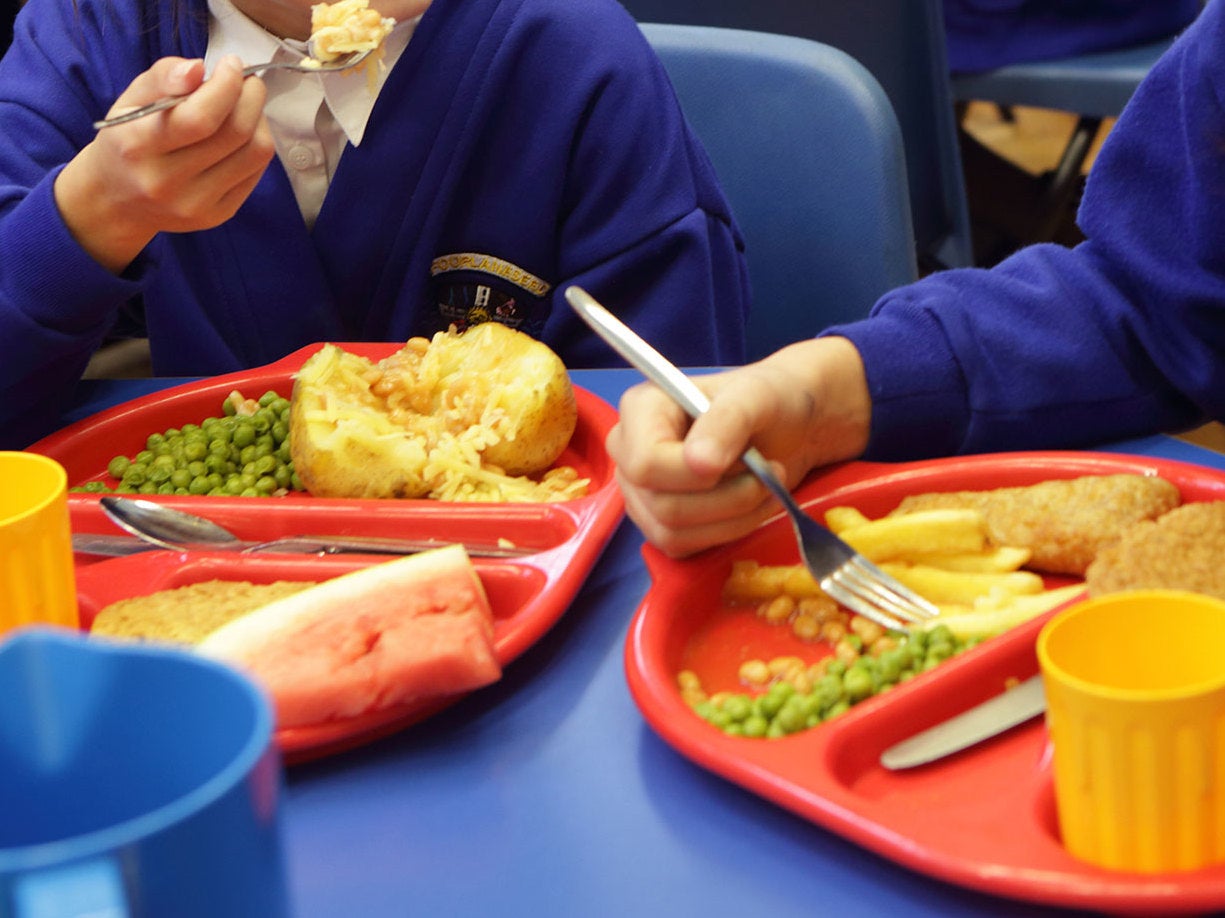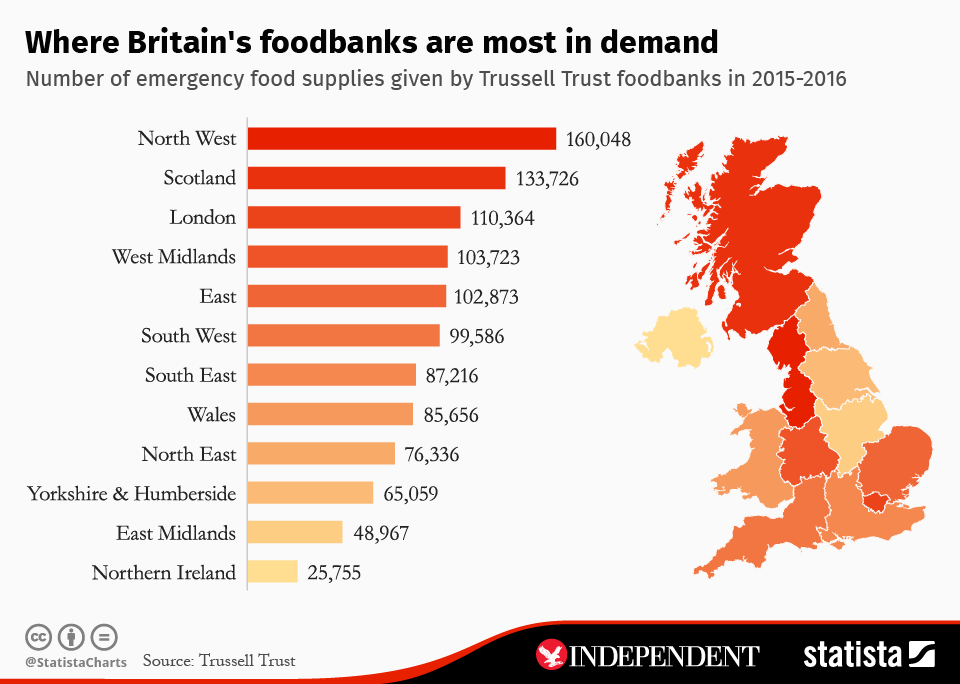Thousands of children start school hungry, MPs warn
More than one in five children at some primary schools in England start their first and final years of primary school underweight, figures show

Thousands of children in England are starting school underweight, a group of MPs has warned.
A report undertaken on behalf of the All Party Parliamentary Group on Hunger has revealed that an increasingly high number of children do not get enough to eat at home and are arriving at school hungry.
“For a minority of children, the school lunchtime represents the only chance each day to eat something substantial,” the group reported.
At some schools, more than one in five children arrive to classes hungry each day, and for some children, their free school meal “may be the only hot food they eat each day”, researchers said.
“In an age of rampant child obesity, there has been a shock increase in the number of children starting their first and final years of school who are underweight,” the group said in a statement.
Data from the National Child Measurement Programme for England last year showed that at least 6,367 children started reception class underweight – an increase of 16 per cent since 2012.
As many as 7,663 children started their final year of primary school underweight, up from 15 per cent in the same year.

In some cases, childhood hunger was “seen as part of a bigger picture of neglect”, but concerns have also been raised about poverty levels in a number of disadvantaged children’s homes.
"Some, maybe most, of these parents do not have sufficient income properly to feed their children,” said MP Frank Field, Chair of the All-Party Parliamentary Group on Hunger.
“Whether the reason for this is a long delay in paying benefits to which they are entitled, low or irregular wages, trying to square previous debts… we do not know.”
Mr Field went on to say that there is not enough data to build a full picture of underweight children’s home environments, but findings suggested that “too many children have hunger as their most constant companion”.
One suggestion that came from the report was to discuss the possibility of using some of the proceeds from the new sugar tax to extend free school meals to disadvantaged children during school holidays.
The group also noted that many poorer families were not making use of the NHS Healthy Start voucher scheme, which allows for free milk, fruit, and vegetable allowances. Around one quarter of families who are entitled to the help scheme are failing to take up the vouchers.
"Something very troubling is happening and there are at least two forces operating,” said Mr Field. “One is the breakdown in parenting, and the second is an increase in the numbers on a low income. It’s a tragedy if one of these strikes a child, but it’s an unbounded horror if a child is hit by both.
"How can the world’s fifth richest nation not know the extent of physical damage caused to its own children by a lack of food?’”
As well as a rise in malnutrition, the study found that a rising number of infants and pregnant mothers are anaemic. Previous reports have shown that an increasing number of people being admitted to hospital in an emergency were found to be malnourished.
In a speech on life chances in January, Prime Minister David Cameron proposed an "all-out assault on poverty" as part of social and economic reform.
Data collected 2011 for the House of Commons Library suggested that more than half a million under-fives were anaemic, the highest level in 20 years.
Former Work and Pensions Secretary Iain Duncan Smith has accused the charity of “scaremongering” in its figures on food poverty.
The MPs say they are working with the United Kingdom Statistics Authority in a bid to obtain better data.
Join our commenting forum
Join thought-provoking conversations, follow other Independent readers and see their replies
Comments
Bookmark popover
Removed from bookmarks